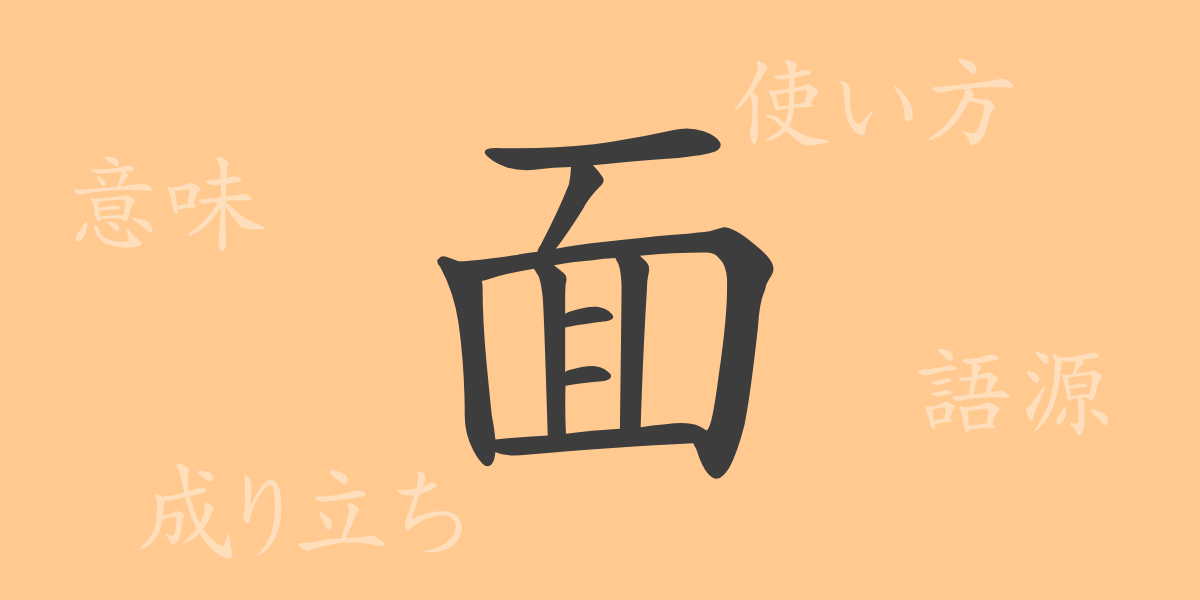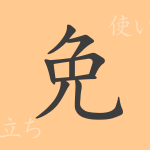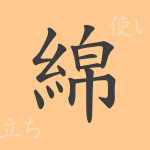In the Japanese language, many kanji (Chinese characters) are used, each with a unique history and meaning. One of the commonly used kanji in everyday life is “面” (men), which has a wide range of applications. In this article, we will delve into the origins of “面” (men), its meanings, uses, readings, stroke count, radical, and even explore idiomatic expressions and proverbs that include “面” (men). Join us on a journey to discover how this kanji adds color to the depth of the Japanese language.
Origins of 面 (men)
Tracing the origins of the kanji “面” (men) takes us back to ancient China. This character, developed from pictographs, originally depicted “the process of weaving thread to make fabric.” It came to signify the flat surface that appears during the weaving process, and from there, it evolved to represent various abstract concepts.
Meanings and Uses of 面 (men)
The kanji “面” (men) often refers to the outer parts of things, such as faces, surfaces, and sides. It is also used in words like 面接 (mensetsu) and 面会 (menkai), which denote direct encounters or dialogues between people. Additionally, it functions as an adjective or adverb, frequently used to express emotions or situations, as seen in words like 面白い (omoshiroi) and 面倒 (mendō).
Readings, Stroke Count, and Radical of 面 (men)
The kanji “面” (men) has various readings in Japanese.
- Readings: The on’yomi (音読み) is “メン” (men), and the kun’yomi (訓読み) are “おも” (omo), “おもて” (omote), and “つら” (tsura).
- Stroke count: It has a total of 9 strokes.
- Radical: The radical is “面” (menzukuri).
Idiomatic Expressions and Proverbs Using 面 (men)
There are numerous idiomatic expressions and proverbs in Japanese that include “面” (men). Here are some examples:
- 面目 (menboku): A word meaning one’s standing or reputation in front of others.
- 面影 (omokage): Refers to the lingering image of a person’s face or appearance in one’s mind.
- 面白い (omoshiroi): Means interesting, fun, or refreshing.
- 面の皮が厚い (tsura no kawa ga atsui): An idiom describing someone as shameless or brazen.
- 面を合わせる (men o awaseru): An expression meaning to meet face-to-face or have a direct conversation.
Summary of 面 (men)
The kanji “面” (men) is a character that enables a wide range of expressions in the Japanese language, far beyond what its simple shape might suggest. From parts of the face to social relationships and emotional expressions, “面” (men) functions as an essential element in our communication. We hope this article helps you understand the rich meanings and uses of “面” (men), contributing to a deeper comprehension of the Japanese language.
“`

























